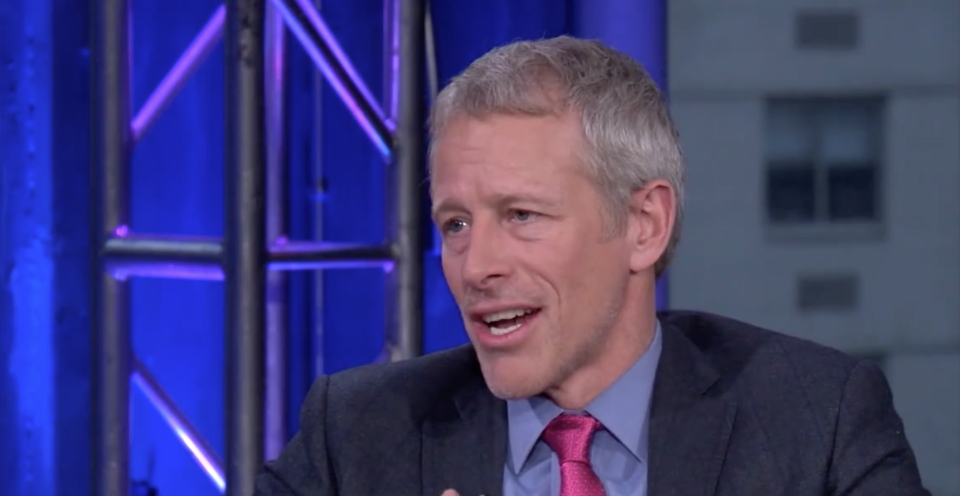Former hedge fund manager Whitney Tilson has his kids' college funds in 5 stocks
Former hedge fund manager Whitney Tilson, the founder of KASE Learning, has his children’s college savings accounts in only five stocks.
The value investor and father of three daughters allocated 50% in Berkshire Hathaway (BRK.A) (BRK.B), 25% in Howard Hughes Corporation (HHC), and the remaining 25% split evenly among Facebook (FB), Google’s parent company Alphabet ( GOOGL), and Amazon (AMZN).
“I almost mentioned it in passing. It’s generated quite a buzz because people seem to think that five stocks is an unusually low number, and I sort of laugh because I would be perfectly happy having my entire net-worth in 100% Berkshire Hathaway stock alone. So I think this is a pretty well-diversified portfolio,” Tilson told Yahoo Finance in a telephone interview on “Market Movers.”
Tilson had previously been a Google skeptic. He changed his mind last year after listening to Warren Buffett and Charlie Munger at the 2017 Berkshire Hathaway annual meeting. At the meeting, Munger said that their “worst mistake in the tech field” was not being “smart enough to figure out Google.”

For Tilson, it was his 20th consecutive annual meeting for Berkshire Hathaway. He goes every year to pick up investing wisdom from the two iconic value investors.
“When they said they really ‘blew it’ on Google and they just beat themselves up for five or ten minutes and really gushed about what an extraordinary business Google is, it really got me thinking, ‘Well, if they love it so much and they blew it by not buying it in the past, I sort of scratched my head, and I said, ‘Well, why don’t they buy it now?'” Tilson said.
Of course, one of the reasons why they didn’t buy it is because the stock has gone up significantly in the last several years.
“Then I thought to myself if they had bought Google five years ago or six years ago, let’s say, and the stock had tripled by now and they were holding on to say 40 billion dollars of Google today, which is about probably what would be the amount given the large investments they make. They would be absolutely thrilled to hold it. They wouldn’t dream of selling it.”
3 most dangerous words in investing
Part of the reason Tilson wasn’t buying is that feeling of regret.
“[The] three most dangerous words in investing are, ‘I missed it,'” Tilson, who now hosts bootcamps on investing, said. “Whenever you say to yourself, ‘I missed it,’ go back and do you work again because maybe you didn’t miss it.”
Tilson went back and did his work on Google again. He added that it’s “not that expensive,” still growing north of 20% per year, and one of the “greatest businesses of all time.”
Tilson’s roots in Google skepticism had run deep. Back in 2004, Tilson published a column on Google where he asserted that he was “quite certain that there is only a fairly shallow, narrow moat around its business.”
“Think about it. What are the odds that it is the leading search engine in five years (much less 20)? 50/50 at best, I suspect, and I’d wager that odds are at least 90% that its profit margins and growth rate will be materially lower five years from now,” Tilson wrote at the time. “Yet investors appear ready to value this company at as much as $36 billion, nearly 200 times trailing earnings! Google with the same market cap of McDonald’s (a stock I own)?! HA! I believe that it is virtually certain that Google’s stock will be highly disappointing to investors foolish enough to participate in its overhyped offering — you can hold me to that.”
A decade later, in 2014, he admitted that it was his “worst call ever” after the stock had increased by more than 10 times. Alphabet’s stock has continued to climb, and now as a shareholder, he’s reaped those benefits.
—
Julia La Roche is a finance reporter at Yahoo Finance. Follow her on Twitter.
